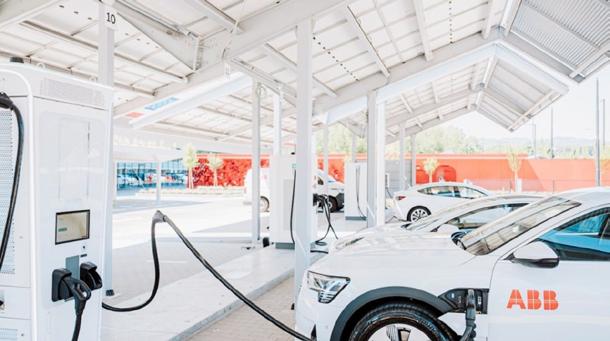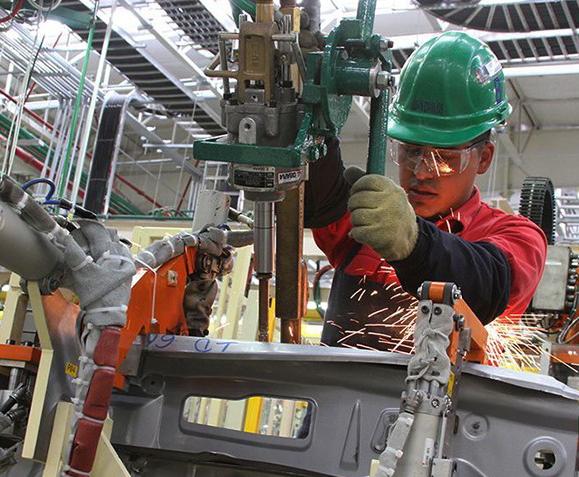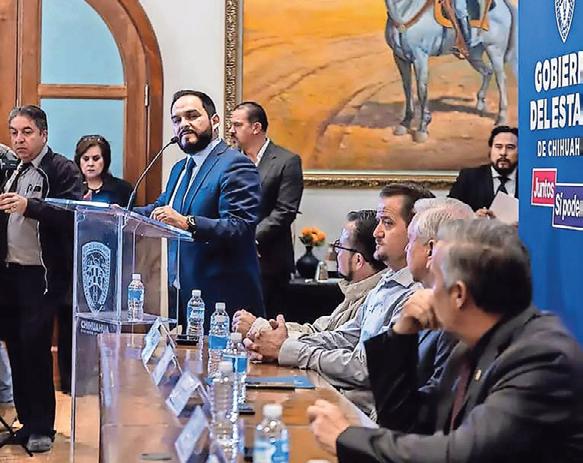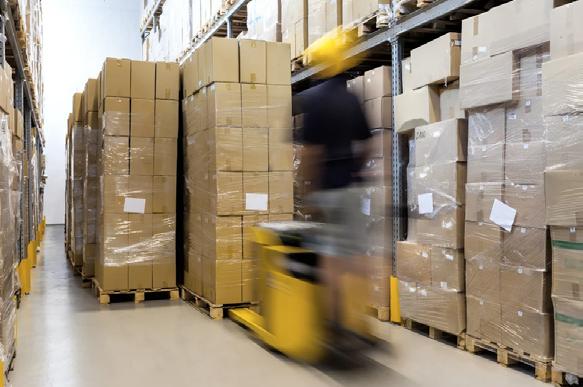GENERAL SITUATION IN MEXICO

Weekly Review I November 13, 2024



Weekly Review I November 13, 2024


Airbus Helicopters has delivered the first H160 to carry out energy sector missions in Latin America with Omni Helicopters International Group (OHI) through its subsidiary Omni Taxi Aéreo. This H160, acquired by leasing company GD Helicopter Finance (GDHF), is the first helicopter delivered as part of a global agreement for 50 H160s between Airbus Helicopters and GDHF. The new medium helicopter adds to Omni’s existing fleet in Brazil, which includes the H175, H225, H155, and H135, and will serve offshore platforms along the Brazilian coast. Duncan Moore, COO of OHI Group, highlighted the H160’s efficiency in reducing CO2 emissions, particularly through optimized seating capacity, aligning with the company’s sustainability strategy. Michael York, CEO of GDHF, praised the H160 for its low fuel consumption, ability to use up to 50% SAF, spacious cabin, and excellent visibility, noting it would enhance Omni’s operational capabilities. The twin-engine H160, capable of carrying up to 12 passengers, offers a range of 890 km (480 NM) with standard fuel tanks and exceeds the latest and most stringent certification standards, including EASA CS29 and IOGP guidelines.
SOURCE: MEXICO INDUSTRY

The government of Puebla has added 21 new electric vehicle chargers at nine strategic locations across the state as part of its “Electric Vehicle Charger Deployment Plan.” Secretary of Economy, Alejandra Montiel, highlighted that these new stations are located at key sites such as the Parque Ecológico, Centro Expositor, and Centro de Convenciones “William O. Jenkins,” among others. This initiative marks a significant step in expanding the infrastructure to support electric vehicles in the region. The chargers were installed in collaboration with companies like CENeutral, Evergo, QION, and XC Power, increasing the state’s charging capacity by 47.67%. Montiel emphasized that this expansion promotes sustainable transportation, helping to reduce barriers to electric vehicle adoption, cut emissions, and improve air quality. With the addition of these 21 chargers, Puebla now has a total of 127 electric vehicle chargers.
SOURCE: MEXICO INDUSTRY
Bosch Mexico is focused on increasing local sourcing to achieve a 75% Regional Value Content (RVC) for its automotive products, in line with the USMCA’s requirements for regional integration. The company has invested MX$25 billion (US$1.2 billion) in new plants and expansions, with MX$15 billion specifically directed to the automotive sector. Bosch aims to create an agile and integrated supply chain by developing reliable local suppliers who meet strict technological and quality standards. However, these suppliers face challenges in increasing production capacity, ensuring continuous supply, and adhering to sustainability and ethical standards. To support this strategy, Bosch organizes the Bosch Business Partner Day, which fosters collaboration and identifies opportunities for improving efficiency. While strengthening its Mexican operations, Bosch maintains vital relationships with both the U.S. and Chinese markets, emphasizing the mutual need for suppliers and customers in both regions. Recent investments include advanced braking systems production at its Aguascalientes plant, with additional expansions planned for the Celaya plant in Guanajuato.
SOURCE: MEXICO BUSINESS NEWS



The Index Association in Mexicali, Baja California, emphasized the need to update the state’s Business Trust (Fideicomiso Empresarial) to a model based on shared social responsibility. Established in 2000, the trust has successfully directed 5% of personal income tax revenues to support economic, educational, and infrastructure projects. However, the association believes it’s time to reassess key aspects, particularly transparency, processes, criteria, and the technical capabilities of the personnel responsible for
project approvals. It also highlighted the emergence of new opportunities, such as a 1.5% payroll tax allocation for 2025, aimed at supporting education, talent development, and public safety. The update is seen as crucial for strengthening coordinated efforts between the private sector and government to drive continued economic and social development in Mexicali, ensuring a competitive, productive, and safe environment.
SOURCE: MEXICO INDUSTRY


Sonora will host the production center for Olinia, Mexico’s first fully designed and assembled electric vehicle, named after the Nahuatl word for “to move.” This initiative, promoted by the Mexican government, aims to provide an affordable and sustainable urban transportation option, created by young local talent. Announced by President Claudia Sheinbaum, Olinia is part of the country’s Technological Development Program for Innovation, which seeks to make electric vehicles accessible to Mexican families while boosting the domestic automotive industry and promoting clean energy. Governor Alfonso Durazo of Sonora highlighted that the project supports the state’s Sustainable Energy Plan, fostering economic growth and positioning Sonora as a leader in decarbonization and clean energy. However, industry experts, like Francisco González from the National Auto Parts Industry, noted the challenges ahead, including the need for significant investment in research and production adaptation to meet competitive standards. Despite these challenges, Olinia is expected to play a crucial role in Mexico’s shift toward a more sustainable

economic model. While there is no official release date, the announcement has sparked significant anticipation in the automotive sector and among consumers looking for eco-friendly and affordable transportation options.
SOURCE: CLUSTER INDUSTRIAL


Caintra Nuevo León remains optimistic about the upcoming review of the US-Mexico-Canada Agreement (USMCA), despite potential uncertainties surrounding tariffs and immigration concerns raised by U.S. President-elect Donald Trump. Máximo Vedoya, president of the Chamber of the Transformation Industry of Nuevo León, emphasized the importance of improving job opportunities to combat poverty, stating that formal employment with benefits is key to social mobility. While acknowledging the challenges, he noted that Nuevo León has a strong job market and the focus is on integrating people into the workforce. Vedoya expressed support for the USMCA, believing it strengthens North America, but called for measures to enhance supply chains and address unfair trade, especially with China. He rejected the idea of protectionism, arguing that competition is unfair due to China’s non-compliance with international trade laws. Vedoya sees the USMCA review as an opportunity to further industrialize Mexico, increase value-added production, and strengthen regional cooperation, despite the complexities of the negotiation process.
SOURCE: EL ECONOMISTA




ICATECH (the State Training Institute of Chihuahua) and SPIC-Zuma Energía have signed a collaboration agreement to promote training in renewable energy. SPIC-Zuma Energía will provide a subsidy of 400,000 pesos, with 25% allocated to the STEM PUEDEN program, which encourages interest in science, technology, engineering, and mathematics careers. The initiative focuses on developing specialized technical skills in solar energy generation and fostering sustainable growth in the region. ICATECH’s director, José Arturo Morales Reyes, highlighted that this partnership strengthens the energy sector in Chihuahua and equips the workforce with essential skills for the renewable energy market. Esteban Atriano Alcántara, from SPIC-Zuma Energía, emphasized that the project will benefit both participants and the state’s productive sector, with courses and workshops tailored to meet the industry’s needs. ICATECH will offer specialized programs to provide participants with technical knowledge and enhance their employment opportunities in the growing solar energy sector.
SOURCE: MEXICO INDUSTRY


The grammar in the original summary is correct, but here’s a slightly refined version for clarity and flow:
To connect students with local industry, the Colegio de Estudios Científicos y Tecnológicos del Estado de Querétaro (CECyTEQ) held a meeting with industrial leaders to discuss strategies for linking apprentices with companies in the region. David Chaparro Aguilar, CECyTEQ’s director, emphasized that this partnership aims to train highly skilled students who can meet labor market demands. Raquel Lara Gallegos, head of CECyTEQ’s linkage department, presented opportunities for collaboration, including advisory services, donations, and support for the productive sector. Dulce Cisneros Fuentes, coordinator of the Dual Education program, explained how this model integrates theory with hands-on experience in companies. Representatives from various organizations, including COPARMEX Querétaro, Tracto Diesel, and Talent for Talent, attended the meeting, reaffirming their commitment to local talent development and strengthening the connection between the education and business sectors.
SOURCE: MEXICO INDUSTRY


Guanajuato’s industrial real estate market has seen significant growth in 2024, driven by nearshoring and increased foreign investment, especially from Asian companies. Chinese firms accounted for 42% of space absorption, primarily in Silao, contributing to a low vacancy rate of 3.55%. The state experienced a 2.25% industrial expansion, with over 1.25 million square feet in new projects and high demand for space, pushing prices to record levels ($0.45–$0.55 per square foot). The automotive, supply chain, chemical, and metalworking sectors are major drivers of demand. This growth solidifies Guanajuato’s role as a key industrial hub in Mexico, attracting more foreign investment and strengthening its position in North America’s supply chain.
SOURCE: REAL ESTATE MARKET & LIFESTYLE


The Mexican government plans to invest 521 million pesos in studies for a proposed passenger rail line connecting Mexico City to Nogales. Passing through the states of Mexico, Hidalgo, Querétaro, Guanajuato, Michoacán, Jalisco, Sinaloa, and Sonora, this project addresses transportation challenges like poor connectivity, high travel costs, and congestion caused by rapid urban expansion. Conducted by the Ministry of Infrastructure, Communications, and Transportation (SICT), these studies will assess technical, economic, legal, and environmental viability, including demand analyses and route clearance evaluations. Other passenger rail projects linking Mexico City to Nuevo Laredo, Pachuca, and Naucalpan are also being explored. The initiative, initially promoted by former president Andrés Manuel López Obrador, now continues under Claudia Sheinbaum’s administration, with construction delegated to the Mexican military. The SICT also requested additional funding for feasibility studies, aiming to develop a more extensive passenger rail network to improve regional mobility and reduce environmental impact.
SOURCE: FORBES MÉXICO

The State of Mexico (Edomex) is a key destination for major investments, particularly in the automotive sector. Laura González, the state’s Secretary of Economic Development, highlighted Ford Mexico’s Global Technology and Business Center (GTBC) in Naucalpan, which employs 5,000 professionals, including 3,500 Mexican engineers. Originally based in Santa Fe, Ford relocated this center to Naucalpan due to its favorable conditions for investment. The GTBC, primarily employing young professionals, focuses on testing Ford’s global models and supports the growth of skilled, well-paying jobs in the region. Edomex’s long-standing automotive ecosystem includes 11 plants producing engines and various vehicles, supported by a robust supply chain. Since Ford began operations in Cuautitlán Izcalli in 1964, the state has continued to attract new projects due to its strategic location, workforce, and infrastructure, making it a prime area for ongoing industrial and economic expansion in Mexico.
SOURCE: EL SOL DE TOLUCA


NORTH
FUERDA SMARTECH
The Chinese company announced that it will invest 30 million dollars in Ramos Arizpe, Coahuila, creating 500 jobs. The company, dedicated to the production of plastics, will be located in the Chuy María Industrial Park.
VYNMSA
The company celebrated the groundbreaking of its new project, the VYNMSA Ramos Arizpe Industrial Park IV, with an investment of nearly 200 million dollars.
CENTRAL MEXICO
KNIPPING AUTOMOTIVE
The German company produces thermoplastics for Volkswagen and Audi. With an investment of 15.5 million dollars and 213 new jobs, the groundbreaking ceremony was held in Ciudad Industrial Xicohténcatl, in Huamantla, Tlaxcala.
CENTRAL MEXICO & NORTH
TOYOTA
Toyota has announced that 1.114 billion dollars will be allocated to its plant in Guanajuato, located in the municipality of Apaseo el Grande, along with the creation of 450 new jobs at this manufacturing facility. The remaining amount will be invested in the plant in Tecate, Baja California.
SOURCE: MEXICO INDUSTRY, EL ECONOMISTA

• INITIATIVE WITH A DRAFT DECREE TO AMEND SECTION VII OF ARTICLE 77 BIS 37 OF THE GENERAL HEALTH LAW
Purpose: To establish the right to a unique electronic health record, with IMSS-BIENESTAR responsible for registering and certifying all beneficiary health information. This record will include all past medical history and may be maintained using electronic or physical formats. Data will remain confidential, and unauthorized disclosure is subject to federal penalties. Authorized personnel will receive a confidential ID key recognized as a legal electronic signature. Record access will be logged.
Presented by: Olga Patricia Sosa Ruiz (MORENA)
Status: Presented to the Plenary of the Senate
• FIRST READING OPINION WITH A DRAFT DECREE TO AMEND AND ADD ARTICLE 21 OF THE POLITICAL CONSTITUTION OF THE UNITED MEXICAN STATES IN MATTERS OF PUBLIC SECURITY
Purpose: To grant the Secretariat of Security and Citizen Protection authority over crime investigation, coordination of the National Public Security Strategy, assistance in national security matters, and intergovernmental coordination, while establishing an Executive Secretariat to standardize and oversee public security operations and manage federal security funds.
Presented by: Constitutional Points Committee
Status: Presented to the Plenary of the Senate


ENVIRONMENTAL
• REFORM TO THE STATE WATER LAW
Purpose: Proposes capping water tariffs to prevent disproportionate increases that exceed inflation rates, ensuring affordable rates for users.
Presented by: Dip. Óscar Daniel Avitia Arellanes (Chih - MORENA)
Status: Turned to Commissions
• REFORM AND ADDITION TO THE GENERAL LAW FOR THE PREVENTION AND INTEGRAL MANAGEMENT OF WASTE
Purpose: Introduces the concept of extended producer responsibility, including waste electronics management. Mandates producers and distributors to create waste management plans focusing on recovery, recycling, and reuse. Encourages investment in waste management infrastructure at federal and municipal levels.
Presented by: Sen. Jasmine María Bugarin Rodríguez (Nay - PVEM)
Status: Turned to Commissions
• AMENDMENT TO THE INCOME TAX LAW
Purpose: Grants tax credits equivalent to 100% of ISR for expenses and investments in recycling and environmental improvement programs implemented by employers.
Presented by: Sen. Claudia Edith Anaya Mota (PRI) and other PRI senators
Status: Turned to Commissions
LABOR
• INITIATIVE WITH A DRAFT DECREE TO ADD ARTICLE 60 TO THE FEDERAL LABOR LAW AND ARTICLE 24 TO THE FEDERAL LAW OF STATE WORKERS, REGULATING SECTION B OF ARTICLE 123 OF THE CONSTITUTION
Purpose: To establish a flexible six-hour workday for workers with children who have disabilities or autism spectrum conditions requiring special care. This flexible schedule allows workers to adjust start and end times to meet their children’s needs without impacting their daily wages.
Presented by: Waldo Fernández González (NLPVEM)
Status: Presented to the plenary of the Senate


• INITIATIVE WITH A DRAFT DECREE TO ADD CHAPTER XIII AND ARTICLE 216 TO THE INCOME TAX LAW TO PROMOTE FIRST-TIME EMPLOYMENT
Purpose: To grant a tax incentive for individuals or entities hiring first-time employees aged 16-29 with no previous IMSS registration or prior work experience. Employers can deduct 10% of the salaries paid to these employees from their taxable income, based on the total salary used to calculate income tax withholdings.
Presented by: Mely Romero Celis (PRI)
Status: Presented to the plenary of the Senate

5 INDUSTRIES TRANSFORMED BY SHELTER SERVICES IN MEXICO
We discuss how shelter services have been pivotal for foreign companies in establishing operations in Mexico. These services provide administrative support, compliance, and workforce management, significantly benefiting industries like automotive, aerospace, medical devices, electronics, and renewable energy. Through shelter services, companies can streamline their entry and operations in Mexico, allowing them to focus on core production while ensuring regulatory compliance and reducing risks associated with market entry.
Mexico’s advanced air mobility (AAM) sector presents strong nearshoring opportunities, capitalizing on the country’s proximity to the U.S., existing aerospace expertise, and manufacturing capabilities. This industry, involving electric and hybrid aircraft, is gaining traction with Mexico’s strategic location, skilled workforce, and supportive infrastructure for components like carbon composites. With new infrastructure needs like vertiports, and applications across urban, cargo, and military sectors, Mexico could play a pivotal role in AAM’s growth and regional supply chain integration.


Our experts explain how new regulations impact IMMEX-certified companies in Mexico. These companies must now use automated inventory control systems to track trade data within specific timeframes and grant customs authorities online access to these systems. Compliance is required by November 15, 2024, with non-compliance potentially leading to certification suspension.
We highlight Mexico’s growing role in electric vehicle manufacturing due to its skilled labor, strategic location, and supportive policies. The report outlines the advantages Mexico offers to OEMs, such as cost-effective production and proximity to major North American markets, positioning it as a competitive hub for EV assembly. It also examines Mexico’s supply chain dynamics and infrastructure, which are critical for accelerating EV production and meeting rising global demand.

VISIT THE INSIGHTS SECTION ON OUR WEBSITE TO SEE SOME HIGHLIGHTED SUCCESS CASES.